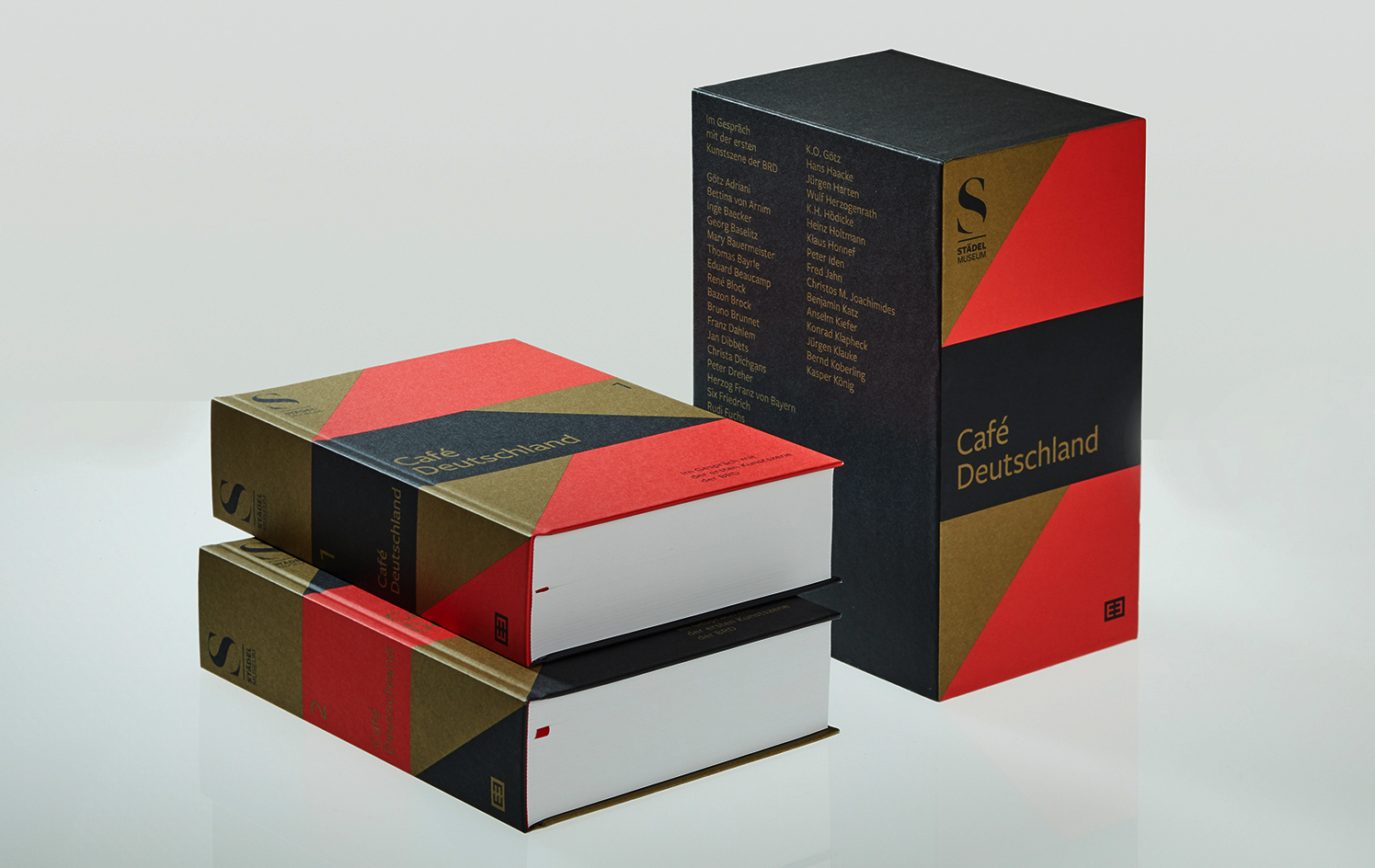
Café Deutschland – more than a coffee-table book
20. February 2019Café Deutschland is an extraordinary book. The format alone is astonishing: the reader is faced with almost 2,000 pages. That’s the kind of scale that can paralyse rather than intrigue, but once you get past its formidable size, you’ll find a series of interviews edited by Franziska Leuthäußer on behalf of the Städel Museum.
These interviews cover the “first art scene in Germany”, whose participants would have been born in 1930s, which makes them all about 80 today – if they’re still around. The talks focus on the post-war years and how the ruins of the Second World War developed into what we now call post-war art. The book goes as far as the “Neue Wilden“ (new savages) of Mühlheimer Freiheit in Cologne and Galerie am Moritzplatz in Berlin.
Does that sound enticing? Not very, to be honest. This critic was born in 1961 and is rather more interested in the present, but nevertheless found the whole subject strangely fascinating – even if expectations weren’t exactly high at first.
The 74 interviews are arranged alphabetically, starting with Götz Adriani and ending with Rudolf Zwirner. Anyone with any relevant involvement during that period is given their say: artists, gallery owners, publicists, exhibition organisers, intellectuals – all of them! And with each interview the book weaves you more strongly into the past. The references, stories and anecdotes – both personal and abstract – slowly and steadily build a strong sense of authenticity and recreate an almost tangible vitality in their portrait of that time.
There’s a real pleasure to be had in hearing all these often-conflicting voices. The same experience is recalled completely differently by several of the interviewees; attitudes of some respondents are diametrically opposed to those of others; and evaluations of exhibitions, for example, differ strongly.
In the end, many conversations revolve around the heroes of German post-war art, most of whom still shape the conversation today, such as Richter, Lüpertz, Baselitz, Kiefer, Penck, and Polke.
The topic is not the hype of today but the beginnings of those days, and how the internal structure was different to that of today – and this alone makes the book worth reading. Also because almost all of the aforementioned heroes (except Penck and Polke) have their say, it’s a “back to the future book”. Yesterday merges with today, and the reader often has the sense of actually being there, in Berlin, Cologne or Munich, even in the early 1960s. This is an extraordinary, peculiar and very readable book.
Further information on the Café Deutschland project can be found here.
